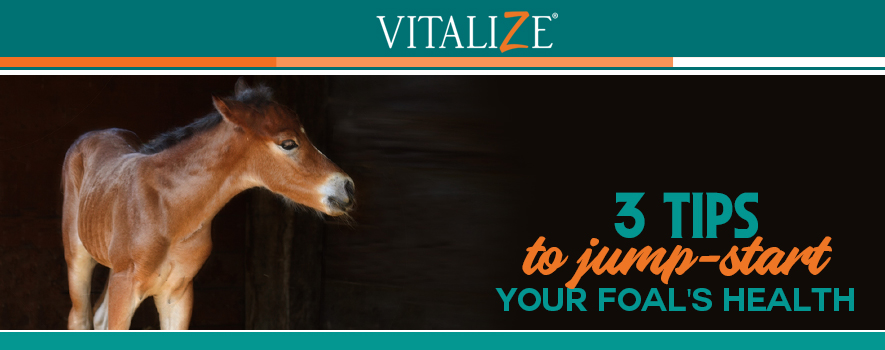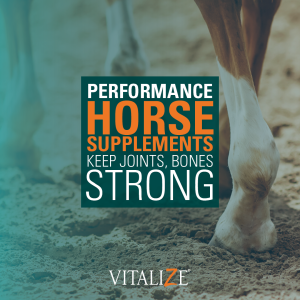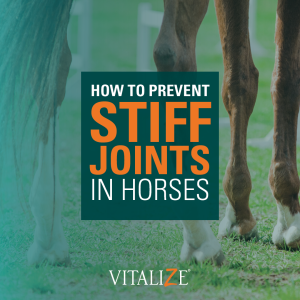
Foaling is a very exciting time. Soon new life will be on the ground and ready to take on the world! But the initial care of a newborn foal and of mare are important to ensuring a healthy and happy life. Follow these tips to jump-start your foal’s health this summer!
Be Attentive
Once the foal is born, he or she should be bright and alert. Within a half hour of its birth, the foal should be making attempts to stand. Within a couple of hours, the foal should be standing successfully and nursing. The first stool (often sticky and dark) should then be passed within the first 12 hours after birth. If the foal is not following this approximate schedule of events, contact your veterinarian to ensure there is not an issue that needs further attention.
The mare should also be bright, alert and curious about her foal after birthing. Keep a lookout for the placenta and examine it once it has been expelled to make sure it is intact. If you believe that part of the placenta has not been expelled, save what has been expelled and contact your veterinarian for advice. It is also a good idea to monitor the mare’s temperature after foaling and for the next few days. If the temperature does become elevated, it may indicate an infection.
Be Armed
You probably have heard a lot of talk about colostrum around foaling. A foal should receive colostrum, the first milk from the mare, within the first 12 hours after birth. The colostrum has a heavy concentration of antibodies, which provide the foal with passive immunity. This helps protect the foal against disease and infection until its own immune system is developed and activated. If the foal is weak, or cannot nurse for some other reason, it will be necessary to get the foal colostrum some other way. This can either be by milking the mare and providing the colostrum to the foal via a stomach tube, or by supplementing an antibody called IgG.
Eventually, the antibodies provided through the colostrum will decline, and immunization will be required to prevent disease in the foal. Depending on several factors, including whether or not the mare was fully vaccinated at foaling or not, the age at first vaccination may be between 3- and 6-months old. The theory is that a foal from a vaccinated mare will have a greater passive immunity and can wait to be vaccinated until they are approximately 6-months-old. Foals from unvaccinated mares, however, require earlier vaccination. Other factors that impact the foal’s vaccination schedule and requirements include geographical region and individual risk factors at the farm.
Be Proactive
The time from foaling to weaning includes periods of immense stress for both the foal and mare, including vaccinations, changes in environment and exposure to new things. If you are planning on foaling this spring or summer, Vitalize® Equine Recovery Gel is something to be sure you have on hand. Recovery Gel is a blend of Amaferm®, BioZyme’s precision prebiotic to improve digestion and absorption of nutrients and stimulate “the good bugs” in the gut, MOS, which helps get rid of “the bad bugs,” and electrolytes, vitamins and antioxidants to help mitigate the physiological effects of stress. It can be used for both the mare and foal during any time of stress. It has been known to assist dramatically in the recovery from the stress of weaning when half a tube is administered three days prior and three days following weaning. If you are expecting this foaling season, don’t be caught without it!
Although foaling brings great excitement to your program, it also brings tremendous responsibility as well. Stress and digestive upset are common post-foaling in both mom and baby, so it is vital to be attentive, armed and proactive in your management practices.

